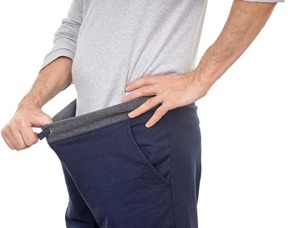An orchiectomy is a surgery to remove one or both of your testicles (testes). This procedure is mainly done to treat either testicular cancer or advanced prostate cancer. Prostate cancer needs testosterone to grow, so by removing the testicles it helps to control the growth of advanced prostate cancer.. After the removal of the testicles, the level of testosterone in the blood will fall quickly. The information provided below helps to explain how to care for yourself following your orchiectomy.
Your Recovery
You can expect to feel better each day, although you may have some mild to moderate pain for several days after surgery. You may need pain medicine during this time. Your scrotum will be swollen after surgery. This is normal. The swelling usually goes down within 2 to 4 weeks. You should be able to do most of your normal activities after 2 to 3 weeks, except for those that require a lot of physical effort.
Caring For Yourself At Home
When you return home, do the following to help ensure a smooth recovery:
- Rest when you feel tired. Getting enough sleep will help you recover.
- Wear the scrotal support that you were discharged with for 48 hours. It will hold the dressing in place and provide support to make you more comfortable. After 48 hours, wear brief style underwear.
- Take the pain medication your healthcare provider prescribed.
- Try to walk each day. Start by walking a little more than you did the day before. Bit by bit, increase the amount you walk. Walking boosts blood flow and helps prevent pneumonia and constipation.
- Avoid strenuous activities, such as bicycle riding, jogging, weight lifting, or aerobic exercise, for 2 to 3 weeks after surgery.
- Avoid lifting anything that would make you strain.
- Do not drive for 1 to 2 weeks after surgery or until your doctor says it is okay.
Incision care
- In most cases, the doctor will use stitches that dissolve on their own in 1 to 3 weeks and do not need to be removed.
- You may take showers. Pat the cut (incision) dry. Do not take a bath for the first 2 weeks, or until your doctor tells you it is okay.
- Wash the area daily with warm, soapy water, and pat it dry. Don’t use hydrogen peroxide or alcohol, which can slow healing. Cover the area with a gauze bandage until it stops oozing. Change the bandage at least one time a day. Your underwear holds the bandage in place.
- Keep the area clean and dry.
Follow-Up
You will have a follow up appointment about 6 weeks or so after your surgery. At the appointment your doctor will:
- examine you
- asks you about how you are and if you have had any complications
It is also your chance to ask any questions. Write down any questions you have before your appointment to help you remember what you want to ask. Taking someone with you can help you to remember what the doctor says. After your first check up you will continue to have follow ups to monitor your cancer. How often you have checkups will vary. Ask your doctor how often you need to have checkups and what they will involve.


